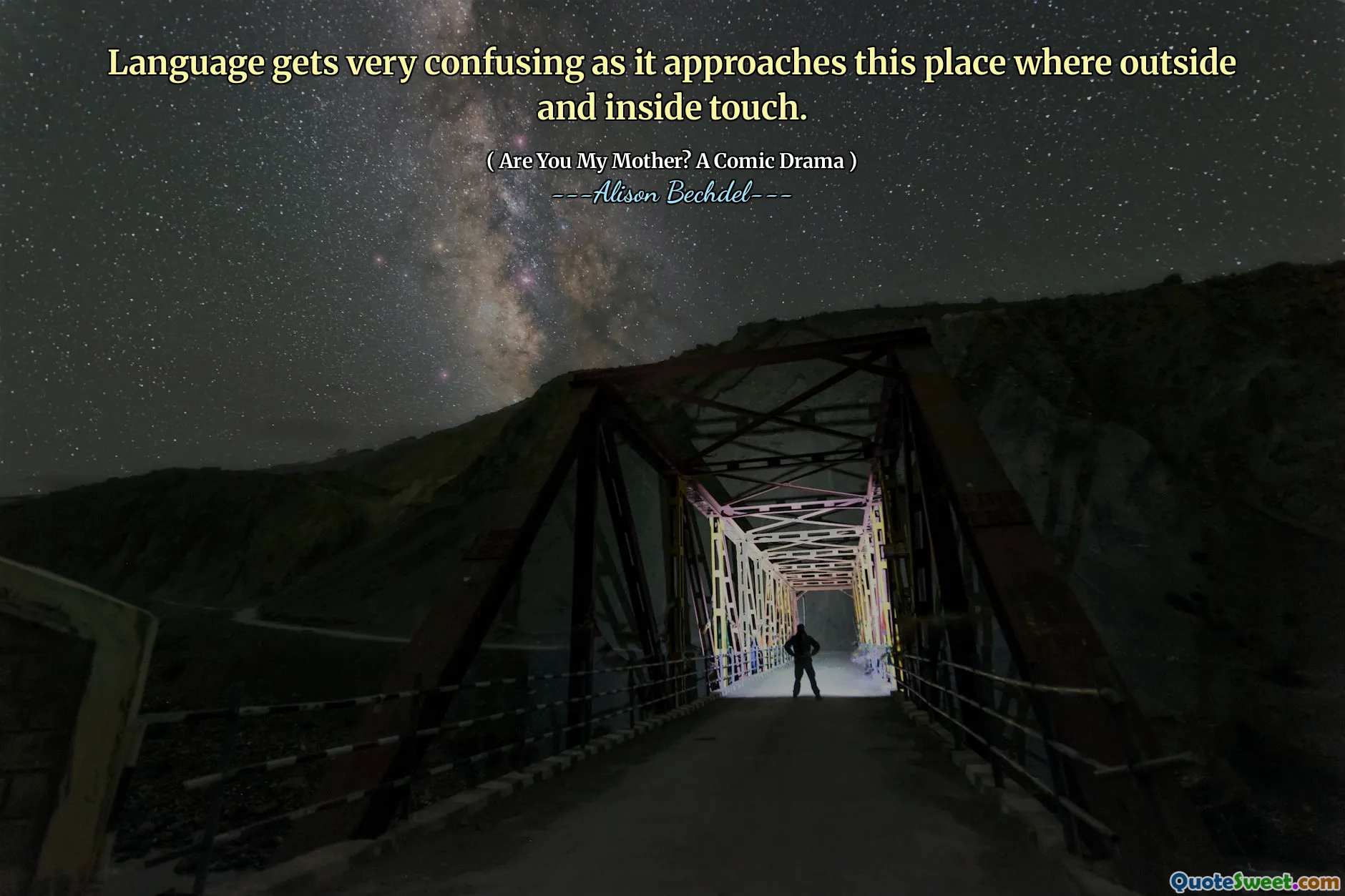
Language gets very confusing as it approaches this place where outside and inside touch.
In Alison Bechdel's '(Are You My Mother? A Comic Drama)', the quote highlights the complex relationship between words and the spaces they attempt to describe. Language, by its very nature, serves as a bridge between our inner experiences and the external world. Yet, at its boundaries—where internal thoughts, emotions, and perceptions meet external expression—it becomes tangled and ambiguous. This is especially true when describing intimacy, vulnerability, or the subtle nuances of subjective experience. As language approaches the point where inside and outside touch, its limitations surface—metaphors may falter, feelings may become distorted, and clarity may be lost. Bechdel often explores the fluid boundaries between self and others, internal and external realities, emphasizing how language struggles to encapsulate these transitions seamlessly. The process of articulating inner truths into words can feel like navigating a delicate threshold, where the risk of miscommunication increases. This phenomenon underscores the importance of patience and empathy in understanding others’ internal worlds, reminding us that language is a tool with boundaries. It invites a reflection on the subtle art of communication—how we negotiate the spaces between our internal landscapes and the external expressions we craft to share them. Recognizing this complexity enriches our approach to conversation, storytelling, and identity, acknowledging that honesty often resides at the edge of linguistic approximation.






